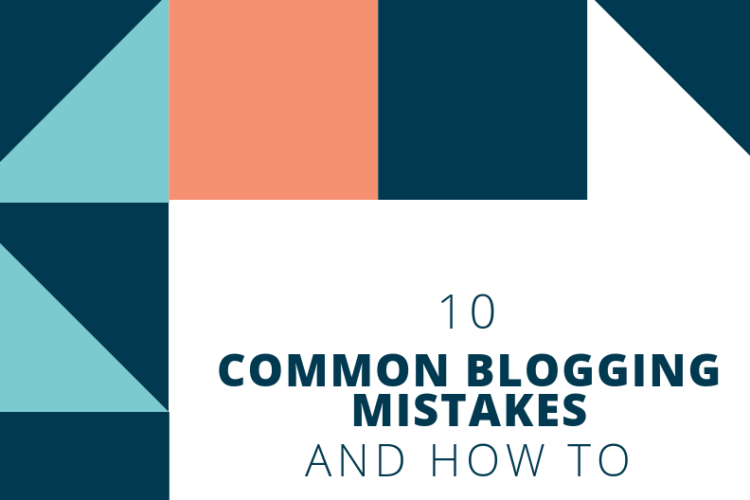
On this page
We all know we need to get a better handle on our content marketing, but we always seem to get stuck at the very first barrier. What topics should my business write about? How to generate the quality leads that would be converted to sales on my website?
And that, this is the million-dollar Inbound Marketing question.
If you’ve read the book “They Ask, You Answer”, which I personally recommend. Marcus Sheridan states that the best piece of advice is to publish articles that answer the questions your customers often ask.
If your customers are asking questions, they are looking for answers and if you can’t provide answers for them. One of your competitors likely will; so make a point to answer their questions in blog articles and website content.
It really is that simple.
However, as outlined in the book, when reviewing the top-performing content from his own pool company River Pools and Spas as well as hundreds of his clients’ websites. He found that five article topics were consistently outperforming the rest (regardless of whether they are B2B or B2C).
Learn more about Inbound Marketing.
Big 5 Blog Topics that drive the most Traffic, Leads, and Sales:
1. Cost
2. Problems
3. Comparisons
4. “Best of” Lists
5. Reviews
We’ll cover them off in greater detail here:
1. Cost
Put yourself in your customers’ shoes, you’re a buyer and when you are looking to buy something. You generally go online to research the product or service before you finalise the purchase.
The buyer, aka your customer, has the power to do as much or as little research they want to before engaging with your business.
Let’s suppose that you just bought a new TV for the family room, or installed a new air-conditioner at home, or just needed something repaired by a tradie. At any point during your research, did you want to know how much it costs?
I could almost guarantee you did, as does the majority of the population, regardless of age, gender or life status. However, and after some research. You were on a sellers website looking for information about costs but were unable to find any real answers.
How did you feel about that company, when those answers weren’t there or were unclear? Did it make you want to jump on a call with them? In fact, you probably switched onto another website to continue your search for these answers, it’s just human nature.
It’s very common to see many businesses not being comfortable talking about costs on their website. Generally it’s for the wrong reasons. These reasons might be why you personally haven’t written about costs yet.
Do any of these sound familiar?
“Our products or services are unique for each situation and as such, we can’t outline costs due to the variables involved.”
“We just don’t want our competitors to know what we’re charging.”
“We don’t want to scare prospects away before we can explain the costs to them.”
You’re nodding your head, right? You have thought this way, haven’t you?
But once you break it down, each of these reasons can be explained in a way to guide the prospect properly:
1.1 “Our products or services are unique for each situation and as such, we can’t outline costs due to the variables involved.”
It’s right and it’s obvious, but the best thing is that customers also understand this. They know a lot of things can influence the final cost. Prices will vary as a result.
If you were having an actual conversation with a customer, your answer to the ‘how much’ question would be: “Well, it depends.” Then, you’d go about carefully explaining the factors that influence the final price.
The same should be for how you address this question on your website. You should simply outline some of the common variables that can influence the costs. Which will then give the customer an idea of the range of possible rates. Just like a conversation, it’s transparent and helpful.
1.2 “We just don’t want our competitors to know what we’re charging.”
I would hazard a guess that your competition already has a good idea of what your costs are. And if they are smart, they would have the pricing question addressed on their website.
If not, here’s a real chance to differentiate yourself and get in front of them.
1.3 “We don’t want to scare prospects away before we can explain the costs to them.”
Whilst this is a genuine concern, the scales are clearly unbalanced on this risk as simply ignoring the pricing question is a sure way to scare them off anyway. At least, you have given them a gauge of your pricing where others may not have, so they know what to expect of you.
They will appreciate the fact that you’ve been as helpful as you can be with such an open-ended question. If nothing else, it’ll foster trust.
Learn more about our approach to Digital Strategy.
2. Problems
As customers are coming to your website to generally solve a particular problem they are having. You should be talking about ‘Their Problems’.
But your solution might not be the best for them, as such you need to also talk about ‘Your Problems’. I know this sounds counter-intuitive, but we’ll get to that soon.
2.1 Addressing Their Problems
No matter what product or service you sell, the potential customer is looking for it to fill the gap they have. This is the same for any product or service around the world, you are only being searched online to solve something.
In a lot of cases, potential customers may only know the indicators, the symptoms if you like of their problems and might not have any idea whatsoever that you can provide the actual solution.
As such you should write content aimed at the indicators of their problems, informing the potential customers of their options.
For Example:
If you’re a Cyber Security service provider, your audience may be searching online for solutions to problems such as “How can I ensure my business is protected from cyber hackers or malware infections?”, or “How can I be entirely confident my staff aren’t going to expose the business to cyber-attacks through loose security protocols?”
Once again, your potential customer is looking for ways to protect their business and ensure their staff are trained about what not to do that would expose the overall business. Thus giving you the opportunity to write articles demonstrating how professional Cyber Security outfits tackle these issues and solve these common problems.
Their problem: The customer wants to secure their business from cyber-attacks.
Your solution: Cyber Security software and help desk.
2.2 Addressing Your Problems
This content should talk about the potential problems associated with the solutions your services or products provided.
Let’s say that a potential customer started their journey searching “why is my power bill so high” and through research, discovered that their house is quite energy inefficient. They have old fashion type lighting, some of their appliances are energy inefficient etc.
Now, they know that they have to take some action to solve their problem, and solar power is one of the options they are looking to explore more. Some of their research will have them without a doubt look into the different solar power deals that are out there.
Whilst reviewing their options, they’ll look up searches such as “does solar power work in shaded areas?”
As I mentioned earlier, this sounds a little counter-intuitive. But your solar power solution won’t always be the best solution for them. They may have a lot of trees providing excellent shade around the house. Therefore, a badly positioned or the wrong type of solar system would be ineffective to impact their power bills. New Micro-Inverter systems that take shade into consideration would be a much better solution. But you don’t normally supply nor install these specialised systems.
It’s time to be honest with them and explain why your standard, yet high-quality, Solar Power solutions would not be the right choice for them. This is also a good way to stop the tyre kickers wasting your time.
The same can be said for Cyber Security services
Confirming that not all prospects are a good fit for your services, you can better help these non-fit prospects realise they are not for you. For example, you could write an article about “7 signs you don’t need a Cyber Security firm right now”.
Just by addressing problems, you do two things; you provide honest and valuable information for the potential customer whilst reducing the number of non-fit prospects coming to you that would normally eat up your time.
3. Comparisons
At the same time, potential customers are researching problems with the solutions they’re looking for, they’re going to naturally want direct comparisons of those solutions.
There is never just one option and they want to know which is the best for them.
But how can they decide between options?
This presents an opportunity to outline each of the options they are likely to be considering, along with the pros and cons of each. How they compare in different classes, and which ones are better under different situations.
The key here is to be as open and transparent as possible with your assessment. Letting the potential customers know exactly which of those products and services you sell. This is important, in the interest of full transparency, to disclose if you have a particular bias. All trust will evaporate down the track if they feel you have been deceptively biased, without this upfront disclosure.
4. “Best of” Lists
As a buyer yourself, think about the last considered purchase you made and the research you conducted beforehand. How many times did you search for a product or service only to see statements like the ‘5 of the best cameras for sports photography or ‘the top ten Noosa restaurants’.
Almost always, right?
It’s just human nature, we are drawn to find out what the ‘best’ is and that’s why it’s one of the most common ways people search online.
We want to see who’s got the top spot and we want to know how they compare to all the others in the list. It helps up feel comfortable in our choices. We need social proof after all.
Interestingly in a ‘best of’ or ‘top’ list, we generally find what’s best for us. There are a couple key “best of” article topics you should write about:
4.1 Best Competitors
Say you’re in the business of Event Management, that you manage corporate events such as conferences, seminars, speaker events etc. for medium to large businesses.
You are targeting the employees of these companies that are tasked internally of making these events happen.
There’s a lot of pressure on these people to bring it all together and make the event a success. As such, they are extremely cautious on selecting the right Event Manager to partner with. Therefore, it is highly likely that they’ll review more than one option when it comes to choosing their ‘Event Manager’.
Like a vast amount of the population, they’ll turn to Google and probably search something akin to: “Best event management companies in Brisbane”.
Now, I get your immediate concern, ‘why on Earth would I write an article listing all our top competitors’. It seems to be counter-intuitive and risky business on the surface, but it isn’t and here’s why.
Remember, potential clients are going to review a handful of Event Management companies anyway. So, they are going to find out about your competition regardless. If you write an article introducing them to the key competitors, they’re at least reading the information from your website. Where you’ll have a higher potential to convert them into leads.
4.2 Best in Class
Regardless of the type of business you are in, writing ‘best of’ lists will give you endless options to educate your market and become an authority figure in your space.
For instance, say you sell 4WD parts and accessories. Whether as a local business or an eCommerce site, it makes no difference; you could write the best of articles until the cows come home.
Anything you sell can have a ‘best of’ list compiled and you can go as wide or as narrow as you want.
- Best LED lights
- Best LED lights under $100
- Best LED lights for beach driving
- Best LED lights for the bush
- Best LED lights for foggy conditions
And you don’t have to just focus on the word ‘best’. There are lots of other descriptive wording people could use to search:
- Cheapest LED lights
- Easiest LED lights to fit
- Longest lasting LED lights
- Brightest LED lights
- Toughest LED lights
- Most colourful LED lights
4.3 Best Practices
Do have moments related to the use of the products or services you sell that you could offer broader advice on? How can potential customers get the results they are after from using your product?
Let’s continue with the example of being a 4WD Parts & Accessories company.
Would the potential customer want to know things like:
- Best practices for beach driving
- Best practices for going off-road
- Best practices for planning a camping trip
- Best practices for night driving in the outback
Writing about these ‘best’ practices will give you so many opportunities to introduce the products and services you sell, all in absolute context of the article.
Planning a camping trip? There’s a good chance you’ll need some 4WD accessories.
Night driving in the Aussie outback? You’ll need good lights.
Driving on the beach? Tyre compressor anyone? Snap-strap perhaps or maybe a winch?
Learn more about Sales Enablement.
5. Reviews
When buyers are considering a purchase, one of the key things they like to ensure is that those who bought your products or services before them are happy with their purchase, and not remorseful. They will want to check with others to see what the general feedback is about the purchases they want to make.
We are, by nature, social beings and if we see that others have been delighted with their decision to purchase, there is a good chance we will be as well.
On the other hand, if there is a common dissatisfaction theme running through the reviews, we’ll naturally baulk and likely not move further with the purchase.
The opinions of others do count, making it hugely important to ensure your aim is always to delight your customers and, in turn, encourage them to write positive reviews about your business that others can feel comfortable with.
So there you have it, thanks to Marcus Sheridan and his book They Ask You Answer, that’s The Big 5 blog article topics every business should be writing about.
Simply by answering these ‘obvious’ questions, you’re pretty much guaranteed to drive more traffic, leads, and sales for your business.
Bonus; since you got all this way, sorry it was a long one, but your reward awaits.
Simply email me at s.brown@digilari.com.au with I’m in for the Top 5 in the subject line and I will forward you a copy of the latest updated book – They Ask You Answer, by Marcus Sheridan. For a limited time only.L





